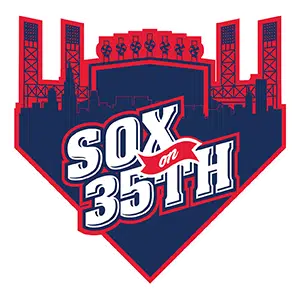This isn’t the article I hoped to write, but I can’t say it was a total surprise. Going into the ALDS, I believed that the White Sox and Astros were very evenly matched, but that Houston’s better lineup, ground ball-inducing starters, and home-field advantage made them more likely to win the series. While this doesn’t make the series loss any less upsetting, I do think it’s fair to admit that Houston was a uniquely bad match-up for the White Sox. That said, it is not the series loss that I am most upset about.
To provide background on my perspective, I have thought much more critically as I’ve gotten older about why I watch sports and why I react the way I do when the teams I root for succeed or fail. After I let Cody Parkey’s infamous missed field goal ruin my week in early January of 2019, I decided I could never let the outcome of a sporting event affect my own life so considerably.
Of course, I want all of my teams to win, and I very much wanted the 2021 White Sox to win the World Series. But I am less upset by the mere fact that they lost (this never felt like “the year” to me, if we’re being honest), and more by the fact that the 2022 regular season (barring a lockout) is over five months away. The White Sox are a constant, and as they have progressed from the “just try to enjoy baseball for what it is” stage to the “we’re a good team now” stage of the rebuild, they have only become a more entertaining constant. The 2021 season, coming off a shortened 2020, was much more meaningful, as it gave White Sox fans their first full 162-game season of objectively good baseball in at least nine years if we’re defining “good” as a winning percentage over .500. The White Sox will be back, but in the meantime, they will be missed.
Needless to say, it will be a long five months. MLB negotiations with the MLBPA concerning the soon-to-expire collective bargaining agreement are likely to be very public and frustrating. Even putting the prospect of a lost or shortened 2022 season aside, the White Sox’ off-season, while important, will probably not feature the same level of intrigue as the last few. The team’s payroll is almost guaranteed to be the highest in franchise history as is, so it is difficult for me to envision splashy additions to the roster, even if a high-salary veteran or two is moved in a trade. The White Sox need a second baseman and a right fielder (evergreen sentence). They will likely also need a starting pitcher and general depth. Perhaps most importantly, they need internal improvement.
In spite of an impressive 93-win season, the White Sox played below their talent level. The team coasted around .500 even after its high profile players returned from injury. The position players, in particular, struggled to hit for power and turned in many good, but not great years. On the bright side, if 2022 can bring better health, I do think that we will see a lot of improvements from this group. As a whole, the White Sox are still a very young team, and I expect them to play closer to their talent level next year (I’ll write out more specifics over the off-season, but aside from the obvious standout performers such as Robert and Grandal, there are also plenty of reasons to be optimistic about Jimenez, Vaughn, and Moncada).
I have already read all sorts of opinions as to why the Astros won the series so handily. I am never really a fan of a team dedicating its off-season to correcting a flaw that was exposed in the postseason, which by nature is so fluky that people should not scrutinize individual performances nearly as often as they do. In this case, the Astros flat out played better than the White Sox, in essentially every facet other than hits (the White Sox outhit the Astros 41-40, but were outscored 31-18).
With that in mind, I think the weirdest reaction I’ve seen from fans is the idea that this series loss means the White Sox need to find more contact-oriented hitters. If the White Sox getting outscored by 13 runs in the series despite outhitting the Astros doesn’t amplify the importance of walks and hitting for power in the modern era of baseball, I don’t know what else to tell you.
As much as I have not been a fan of Tony La Russa’s managerial philosophies this year, I actually thought he did a fine job in the final two games of the series compared to the first two — sure, his bullpen moves did not work out yesterday, but I understood them in the moment and I’ve never been a hindsight analyst.
If you want to take away anything from this series, I suppose it could be that the White Sox’ starting pitching was the team’s prime weakness, rather than the strength it had been throughout the regular season. No, this does not mean that they all need to make sweeping changes — if anything, I think the Astros, the league’s top fastball-hitting team, were just a uniquely difficult match-up for a rotation that largely thrives on power fastball approaches. It may not be the answer you’re looking for, but it’s the best I can come up with.
Thank you, as always, for reading — both my own work and that of the rest of the terrific Sox On 35th writers. This marks my fifth season on the blog, and it was my favorite to date. I hope that this somewhat amorphous collection of thoughts can make you feel at least a little better about yesterday’s loss and the team’s future. While there will be less to discuss in the off-season, I look forward to continuing to write about specific White Sox players and potential free agency and/or trade ideas in the coming months.
Follow us @SoxOn35th on social media for more!
Featured Photo: White Sox / Twitter


Here’s my one comment. Nick Madrigal. Should not have traded him. He will be missed next year.
I agree with everything you said!